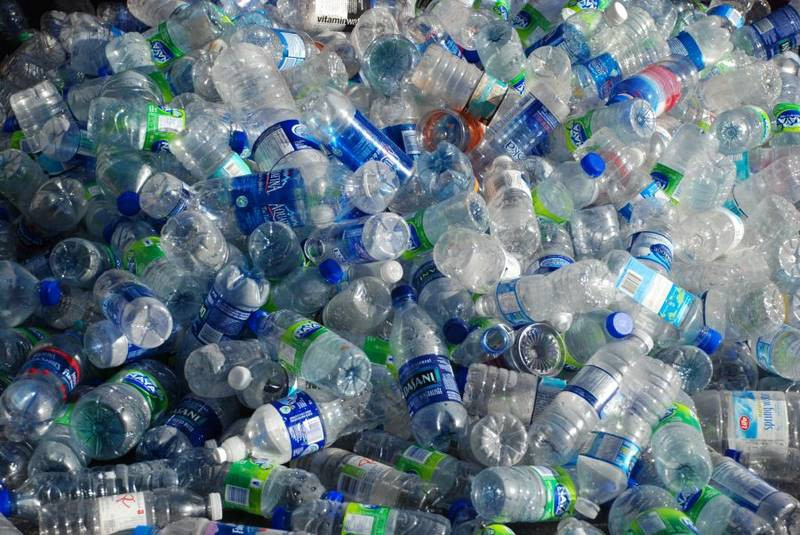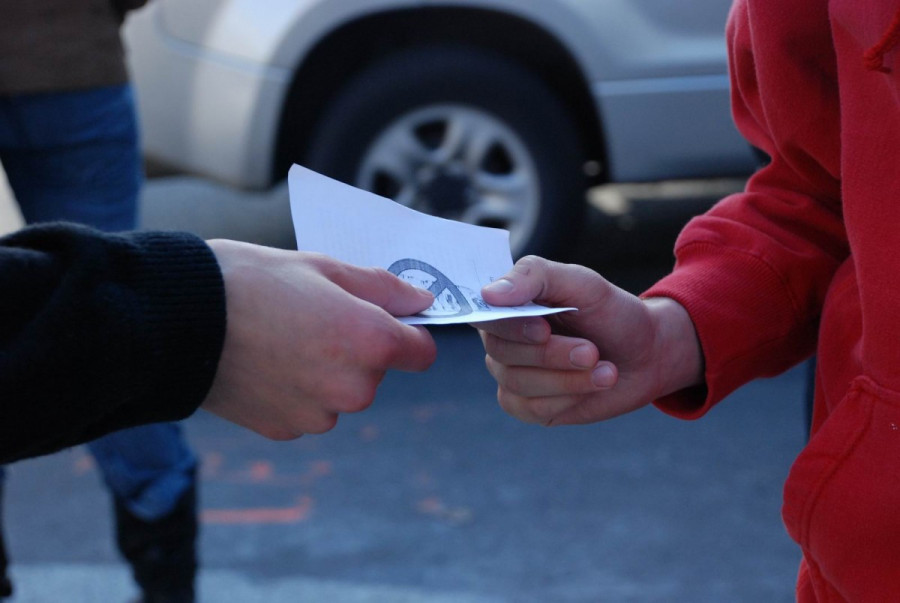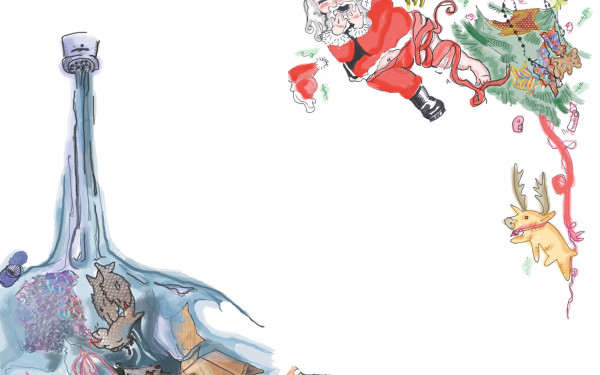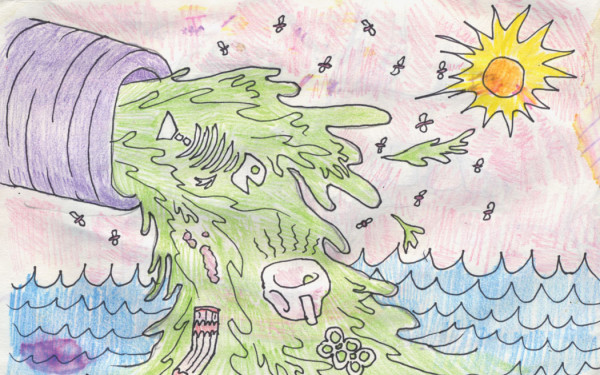Plastic Rain
TAPthirst, überculture and QPIRG Dump Hundreds of Plastic Bottles on Campus
According to a recent R4 Sustainable Concordia Waste Audit, 5,800 single-use water bottles are thrown out at Concordia every single day. The amount dumped on Norman Bethune Square amounts to about an hour’s worth of discarded bottles. All 242 bottles required for the demonstration were collected from recycle bins on the day of the demonstration.
Michael Heinermann, a member of Tap drinkers Against Privatization, or TAPthirst, participated in the demonstration. He said the main misconception leading people to drinking water from a bottle rather than their kitchen sink is that tap water is unhealthy. The demonstration was part of the ongoing campaign to influence Concordia to end its 13-year contract with PepsiCo when they negotiate a new agreement before the contract expires in December.
“All the drink products are under Pepsi’s control now. We want it to be non-exclusive so that one company doesn’t [monopolize campus beverage distribution],” said HeinermEarlier this year, Concordia’s Environmental Advisory Committee comprised of staff, faculty and student representatives drafted a set of criteria that they sent to Concordia President Judith Woodsworth in a petition with 35 signatures.The draft stipulated that the following criteria be included in any contract negotiations: an end of bottled water on campus, environmentally and socially responsible products with a 30 per cent quota for locally supplied products, open contract negotiations so multiple suppliers can bid and a transparent negotiation process. Without formally acknowledging or accepting the above criteria, Director of Hospitality Concordia Johanne De Cubellis extended an invitation to TAPthirst and Sustainable Concordia to meet with PepsiCo this summer.
The meeting with PepsiCo never happened. Co-founder of TAPthirst Laura Beach believes that the suggestion to speak with PepsiCo was “born out of loyalty and financial considerations on the part of the university.” “Personally, I don’t want to see [PepsiCo] on campus anymore,” she
continued. “They don’t have the best track record as far as social and environmental responsibility goes.”
Concordia spokesperson Chris Mota said that the university is open to working with TAPthirst and Sustainable Concordia and wants to see them
involved in the negotiations.
In a move that came as a surprise to Beach, on Oct. 6, Concordia arranged for her and Faisal Shennib from Sustainable Concordia to meet with Nestlé this Wednesday. Just as Concordia suggested that TAPthirst speak with Nestlé, a company that was speaking about the benefits of bottled water on campus.
Earlier this semester, Bishop’s University voted in favour of banning bottled water on their campus, becoming the first to do so in Quebec. Nestlé’ s director of corporate affairs, John Challinor, challenged Beach in a letter to The Gazette to deflect what he calls “now-discredited myths about bottled water that one typically finds on the Internet.” He cited Health Canada studies as proof that bottled water is healthy and safe. Beach and TAPthirst are preparing to meet with Nestlé regardless of their
differences.
TAPthirst will be holding a Public Assembly on Corporatization of Concordia on campus on Oct. 28 to strategize and create a plan of mobilization against the upcoming beverage contract and against “systems of corporate control on campus in general.”
This article originally appeared in Volume 31, Issue 11, published October 26, 2010.








_600_375_90_s_c1.jpg)
_1_600_375_90_s_c1.JPG)